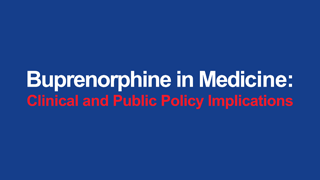Retrospective study of the effect of opioid prescribing guidelines on prescribing practices in pediatric orthopedic sports medicine patients having knee surgery: A single institution's experience
DOI:
https://doi.org/10.5055/jom.2021.0660Keywords:
analgesics, opioid, retrospective studies, adolescent, oxycodone, prescriptionsAbstract
Objective: Guidelines for opioid prescription post-operatively exist; however, the majority of these are for adults. Nevertheless, opioid risks are present for pediatric patients also. This study investigates the effect of a single institution's guidelines on post-operative opioid prescribing for pediatric orthopedic patients undergoing knee surgery. We hypothesized that a standardized set of prescribing guidelines would result in a decrease in opioids prescribed at discharge home after these surgeries.
Design: Retrospective observational.
Setting: Urban, tertiary care, academic orthopedic hospital.
Patients: Pediatric, sports knee surgery, 23-month period.
Interventions: Guidelines were implemented institutionally for post-operative opioid prescribing practices. We reviewed all post-operative opioid prescriptions for pediatric patients undergoing sports knee surgery with two pediatric sports surgeons for the 11 months prior to the guidelines and 12 months afterwards, totaling 316 surgeries.
Main outcome measure: Oral morphine equivalents (OMEs) prescribed on discharge from the hospital before and after implementation of guidelines.
Results: There was a significant reduction in OMEs from 229 OMEs to 175 OMEs before and after opioid prescribing guidelines (p < 0.001). This is a decrease in approximately seven 5 mg oxycodone tablets per patient.
Conclusions: This study demonstrates that at our institution, with a pediatric patient population having sports knee surgery, prescribing guidelines reduced the number of opioids prescribed at discharge.
References
Manchikanti L, Helm S 2nd, Fellows B, et al.: Opioid epidemic in the United States. Pain Physician. 2012; 15(3)(Suppl): ES9-ES38.
Kumar K, Gulotta LV, Dines JS, et al.: Unused opioid pills after outpatient shoulder surgeries given current perioperative prescribing habits. Am J Sports Med. 2017; 45(3): 636-641.
Volkow ND.: Prescription opioid and heroin abuse. Available at https://www.drugabuse.gov/about-nida/legislative-activities/testimony-to-congress/2015/prescription-opioid-heroin-abuse. Accessed April 29, 2014.
Hill M, Stucke R, McMahon M, et al.: An educational intervention decreases opioid prescribing after general surgical operations. Ann Surg. 2018; 267(3): 468-472.
Lovecchio F, Derman P, Stepan J, et al.: Support for safer opioid prescribing practices: A catalog of published use after orthopaedic surgery. J Bone Jt Surg. 2017; 99(22): 1945-1955.
Stepan J, Sacks H, Lovecchio F, et al.: Opioid prescriber education and guidelines for ambulatory upper extremity surgery: Evaluation of an institutional protocol. J Hand Surg Am. 2019; 44(2): 129-136.
Sabatino MJ, Kunkel ST, Ramkumar DB, et al.: Excess opioid medication and variation in prescribing patterns following common orthopaedic procedures. J Bone Jt Surg Am. 2018; 100(3): 180-188.
Soffin EM, Waldman SA, Stack RJ, et al.: An evidence-based approach to the prescription opioid epidemic in orthopedic surgery. Anesth Analg. 2017; 125(5): 1704-1713.
Ruder J, Wally MK, Oliverio M, et al.: Patterns of opioid prescribing for an orthopaedic trauma population. J Orthop Trauma. 2017;31(6): e179-e185.
Stepan JG, Lovecchio FC, Premkumar A, et al.: Development of an institutional opioid prescriber education program and opioid-prescribing guidelines: Impact on prescribing practices. J Bone Jt Surg Am. 2019; 101(1): 5-13.
Mahan ST, Feldman L, Cheng C, et al. Assessment of current narcotic prescriptions in orthopaedics at Boston Children's Hospital. Orthop J Harv Med Sch. 2017; 18: 6-13.
Centers for Disease Control and Prevention. Calculating total daily dose of opioids for safer dosage. CDC Drug Overdose Web site. Available at https://www.cdc.gov/drugoverdose/pdf/calculating_total_daily_dose-a.pdf. Accessed June 2018.
Seth P, Scholl L, Rudd RA, et al.: Overdose deaths involving opioids, cocaine, and psychostimulants—United States, 2015–2016. Morb Mortal Wkly Rep. 2018; 67(12): 349-358.
Volkow ND, Mclellan TA, Cotto JH.: Characteristics of opioid prescriptions in 2009. J Am Med Assoc. 2011; 305(13): 1229-1301.
Raney EM, van Bosse HJP, Shea KG, et al.: Current state of the opioid epidemic as it pertains to pediatric orthopaedics from the Advocacy Committee of the Pediatric Orthopaedic Society of North America. J Pediatr Orthop. 2018; 38(5): e238-e244.
Downloads
Published
How to Cite
Issue
Section
License
Copyright 2005-2025, Weston Medical Publishing, LLC and Journal of Opioid Management. All Rights Reserved.










